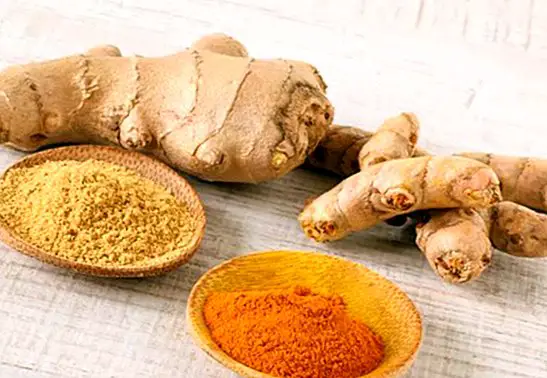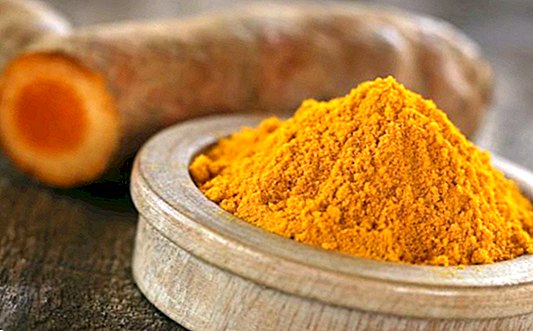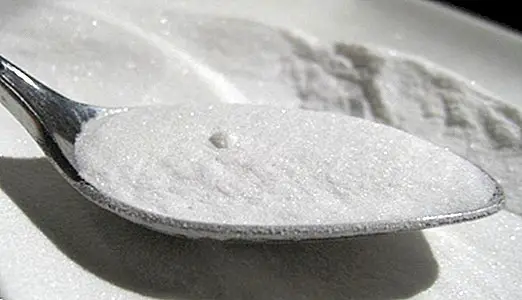The great properties and benefits of turmeric
The turmeric It is a certainly warm spice, with a great aroma and flavor that comes from the orange flesh root of a herbaceous plant belonging to the family of the zingiberáceas, known scientifically with the name of Curcuma longa, which is mostly native to southern India and Indonesia.
It is a spice with great historical tradition, since it was used for the first time in India between 610 a.C. to 320 a.C., at which time it was used as a dye for wool thanks to its yellow / orange color due to the presence of curcumin. 
Many centuries later it became one of the spices most used in Hindu gastronomy, for its qualities as food coloring (especially in rice and meat dishes), and for be part of the spices that make up the popular curry.
The benefits of turmeric
It helps to take care of the liver naturally
Did you know Turmeric is very beneficial in the care of the liver? In fact, it becomes an ideal spice when it comes to to protect the liver in a completely natural way, thanks to the presence of curcumin, caffeic acid, borneol, eugenol and turmenone, all substances with hepatoprotective action (that is, they help protect the cells of the liver).
It also helps to take care of gallbladder, being a natural option advised at the time of remove gallbladder stones.
Digestive and stomach tonic
Turmeric is an excellent tonic for the digestive system, so it's very interesting when it comes to facilitate and improve digestions, especially when there are slow or heavy digestions. In fact, its consumption is very useful in case of dyspepsia and especially in a kind of gastritis chronic in which hypochloride occurs (lack of acid secretions in the stomach).
It is also useful to facilitate the digestion of fats, thanks to its colagogo effect, which is why it is so interesting in case of copious and excessive meals. 
Antiulcer properties
Turmeric is rich in zingiberene, an active compound that stands out for its antiulcer qualities. It also provides 1-phenyl-hydroxy-N-pentane, a sistance capable of stimulating the secretions of pancreatic juices, gastrin and secretin. Further, helps maintain gastric pH.
Helps relieve gas
In case of gases and flatulence turmeric helps naturally when it comes to reducing them, thanks to its carminative qualities, which help at the time of expel gas from the intestine, which is why it is appropriate when it comes to alleviating intestinal gases.
Suitable in cancer prevention
Did you know that the turmeric rhizome contains 10 components with anticancer action? These include curcumin, beta-carotene, curdione, limonene and curcumenol. According to recent research, Turmeric would help reduce the risk of various types of cancer, as is the case of duodenum cancer, breast cancer, colon cancer and skin cancer. In addition, it would help reduce the effects of drugs that are usually prescribed in the treatment of cancer. 
Anti-inflammatory properties in case of carpal tunnel syndrome and rheumatoid arthritis
Turmeric provides a useful anti-inflammatory effect to reduce the symptoms associated with rheumatoid arthritis and the carpal tunnel syndrome. This is demonstrated by numerous scientific studies, which have confirmed the anti-inflammatory qualities of curcumin.
How to make a turmeric tea
An excellent way to enjoy its different qualities and benefits is to prepare a wonderful turmeric tea. Its preparation is really simple, and in just a few minutes you can enjoy a natural and delicious drink. Discover how.
Ingredients:
- 1 teaspoon of turmeric
- 2 cups of water
- 1 teaspoon of honey (optional)
Preparation of turmeric tea:
Put the water in a saucepan and when it boils add the teaspoon of turmeric. Lower the heat, cover and let rest for 15 minutes. After this time filter or strain the drink, add it in a cup and sweeten to taste. Ready!. 
Contraindications of turmeric
The regular and habitual consumption of turmeric is not advised in the case of the following conditions and health problems:
- Liver diseases:especially in case of serious liver disease. We must bear in mind that turmeric is a supplement with liver qualities, but before any disease it should always be treated by the doctor.
- Gallstones in the gallbladder:the consumption of turmeric can cause painful cramping in the case of stones in the gallbladder.
- Before a surgical intervention:Since turmeric can affect blood coagulation, it is not recommended before surgery.
- Pregnancy and lactation:during pregnancy, turmeric can have an emenagogo effect (it favors and increases menstruation). On the other hand, there is not enough security to ensure that turmeric can affect breastfeeding. Therefore, the use of supplements is not recommended during pregnancy or during breastfeeding.
- Allergies:in case of allergy to rhizome or turmeric powder.


